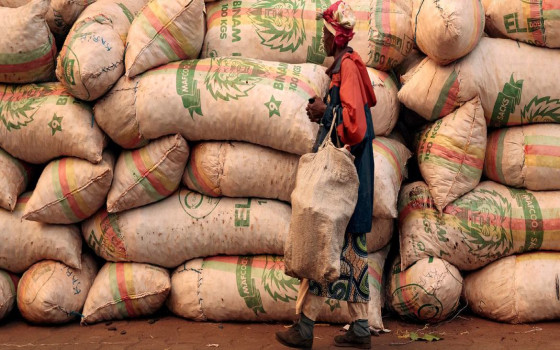
After decades of conflicts and the destruction of economies... prevention and peacebuilding break the cycle of violence and lay the foundations for achieving sustainable development

- Europe and Arabs
- Thursday , 22 August 2024 12:53 PM GMT
New York: Europe and the Arabs
The Assistant Secretary-General for Peacebuilding Support, Elizabeth Spehar, said that the number of conflicts has reached its highest levels in decades, causing unimaginable suffering, destroying economies, and depriving societies of their future, stressing that the Secretary-General's policy brief "A New Agenda for Peace" can contribute to reversing these trends, providing opportunities for those affected by violence, and reducing the human and economic costs of war.
This came during her briefing at the open debate organized by the Security Council yesterday, Wednesday, under the title "Building and Sustaining Peace: The New Agenda for Peace - Addressing Global, Regional and National Aspects of Conflict Prevention".
Spehar focused on three main areas outlined in the New Agenda for Peace that can be invested in to enhance prevention and peacebuilding to achieve the goals of the United Nations Charter.
She said that the first of these areas is "strengthening and supporting voluntary, comprehensive, nationally owned and state-led prevention and peacebuilding efforts, and strengthening national infrastructures for peace". The UN official added that the voluntary development of national strategies provides important political impetus for the radical shift in prevention approaches.
She explained that such strategies would help mobilize different national stakeholders, including governments as well as civil society, around common priorities, helping to strengthen social cohesion and national peace infrastructures.
A comprehensive approach
The second area, according to the Assistant Secretary-General for Peacebuilding Support, is “ensuring cohesion and a comprehensive approach to prevention and sustaining peace.”
Spehar said: “The best way to prevent societies from slipping into crises is to ensure their resilience by investing in inclusive and sustainable development and inclusive governance.”
She further explained that in promoting a comprehensive approach to prevention and peacebuilding, the “New Agenda for Peace” emphasized the need to address transnational threats that can often impact and hinder national prevention efforts, including the negative effects of climate change, transnational organized crime and terrorism.
Strengthening critical partnerships
The UN official also stressed the importance of “strengthening critical partnerships and providing more resources for prevention and peacebuilding,” as a third area in which to invest, noting that “the complexity of the conflict landscape requires us to seek out and employ all available tools for prevention and peacebuilding.”
Spehar explained that when discussing prevention and peacebuilding, political commitment and the right partnerships are key, but resources will always remain central, stressing that financing peacebuilding is what translates commitment and strategies into impact on the ground.
She added: “It is alarming to see investments in peace and conflict prevention steadily declining while military spending is increasing around the world.” She said that figures showed that violence cost the world nearly $20 trillion last year, or 13.5 percent of global GDP.
Peacebuilding Commission
The Assistant Secretary-General for Peacebuilding Support stressed that “prevention and peacebuilding can break the cycle of violence and lay the foundations for ensuring sustainable development for all.”
She said that the United Nations, with its unique tools, expertise and networks, could play a pivotal role in supporting prevention and peacebuilding efforts globally, adding that “in the midst of increasing polarization, strengthening these tools is crucial to achieving this mission.” She pointed to the role of the United Nations Peacebuilding Commission, which has untapped potential to serve as a space for Member States to address long-term structural conflict prevention and peacebuilding efforts. She stated that in order to enhance the effectiveness of the Peacebuilding Commission, it is essential for this body to develop a more strategic and systematic relationship with international financial institutions and regional development banks in order to align financing instruments with national peacebuilding priorities.












No Comments Found